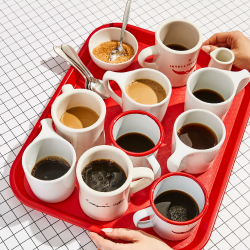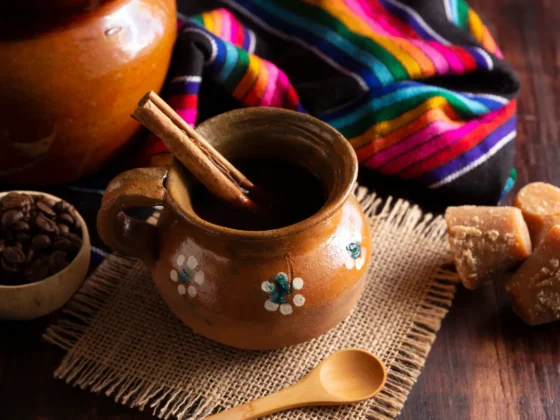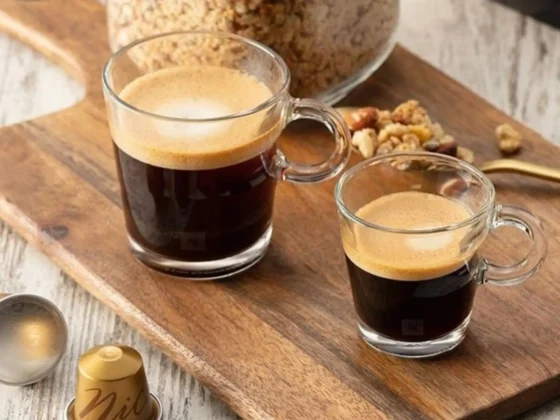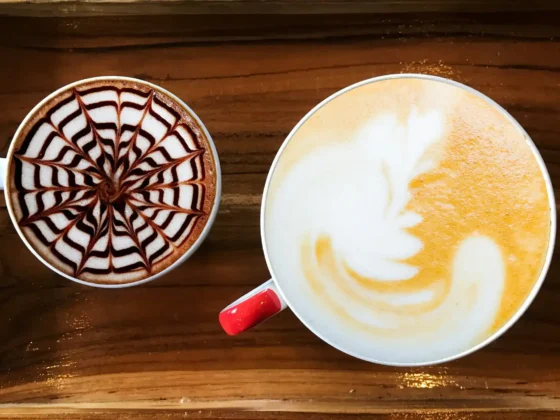Bosnian coffee is much more than just a beverage; it’s a deeply rooted cultural ritual that captures the essence of Bosnia’s rich heritage and distinctive tastes. From the deliberate slowing down of time as one prepares and savors each sip, to the communal bonds forged over shared conversations, Bosnia’s coffee tradition weaves a tapestry of history, philosophy, and intricate craftsmanship. The unique methods of preparation, the artistic aesthetics of the serving sets, and the profound reflections it invites make Bosnian coffee a captivating journey of both flavor and thought. Dive with us into the heart of Bosnia’s coffee culture, and explore the nuances that make it both an age-old tradition and a contemporary delight.
Bosnian Coffee: Key Takeaway
- More Than Just a Beverage: From its meticulous preparation methods to its role in social gatherings, this delectable beverage forms an integral part of Bosnian culture and daily life.
- Traditional Tools and Art Forms: Often made from metals like copper and adorned with intricate designs, the džezva, and fildžan have both practical and aesthetic value.
- The Ritual of Preparation: This coffee demands a particular method of brewing that includes specific steps to achieve the perfect foam and reduce bitterness.
- Coffee as Social Glue: In Bosnia, offering coffee is often a sign of hospitality and goodwill. It’s a reason for friends and family to come together and engage in meaningful conversations, making it a social institution.
- A Moment for Reflection: Beyond its social and aesthetic aspects, this delicacy invites people to slow down and reflect. Whether enjoyed alone or with others, each sip is an opportunity to contemplate life’s complexities.
What is Bosnian Coffee?
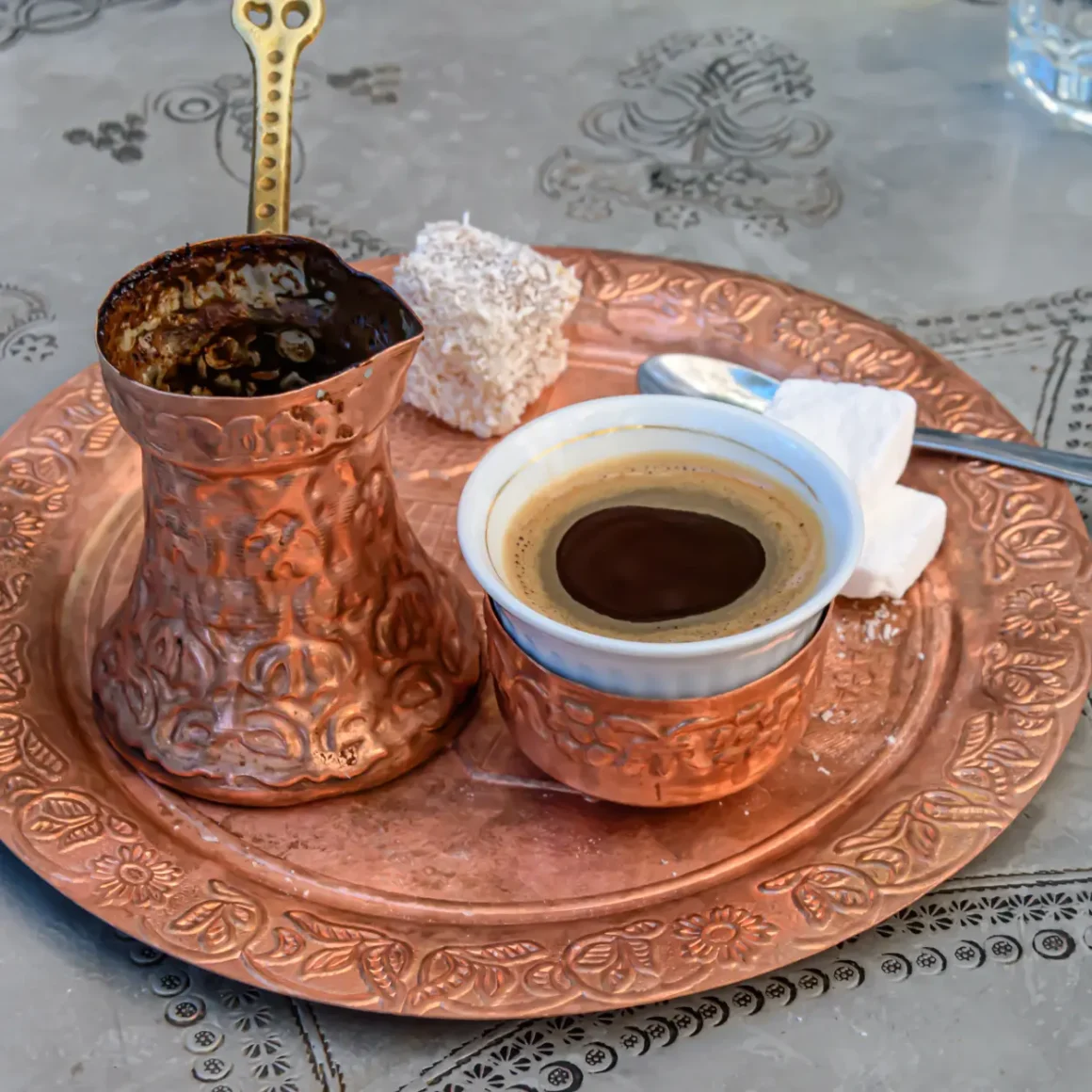
Bosnian coffee is a unique and time-honored beverage that has been a part of Bosnia and Herzegovina’s cultural fabric for centuries. Its origins can be traced back to the era when the Ottoman Empire exerted its influence over the region, from the 16th to the 19th centuries. In a society where Islam’s tenets prohibit the consumption of alcohol, coffee emerged as the natural choice for social engagements.
Often mislabeled as Turkish coffee, Bosnian coffee stands apart both in preparation and presentation. Though served in a container that may look similar to what you’d find in Turkey, the entire brewing process is distinctly Bosnian. This beverage is more than just a daily ritual; it plays an essential role in the social fabric of Bosnia and Herzegovina. (1) Whether it’s a casual gathering or a more formal occasion, this concoction is often at the center, symbolizing hospitality and communal bonds.
Historical Roots of Bosnian Coffee
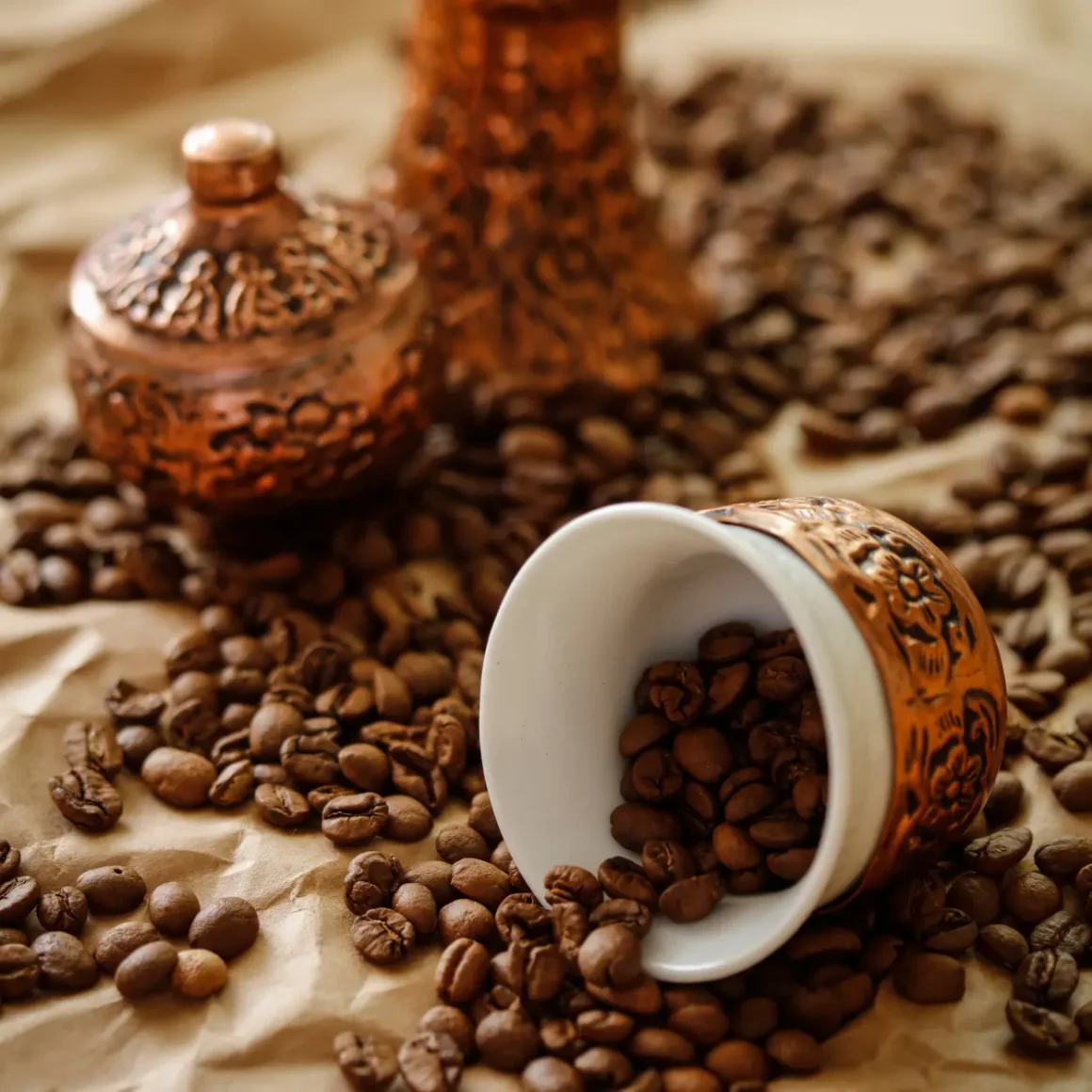
The story of this delightful coffee drink is deeply entwined with the historical and cultural evolution of Bosnia and Herzegovina. It serves as a reflection of a complex past that includes Ottoman rule. Let’s delve into the rich history and unique characteristics that make Bosnian coffee a noteworthy element of the nation’s cultural tapestry.
The Ottoman Influence
The origins of this drink can be traced back to the period when the Ottoman Empire stretched its rule over Bosnia and Herzegovina, roughly between the 16th and 19th centuries. During this time, several key factors influenced the beverage’s place in society:
- Islamic Law: Given that alcohol consumption was forbidden under Islamic law, coffee naturally became the go-to social drink.
- Cultural Import: The Ottomans introduced not just the beverage but also the ritualistic aspects of coffee drinking that prevail today.
- Continuity: Even after the Ottomans left and the Austro-Hungarian Empire took over, the coffee culture remained deeply rooted.
The Ottoman rule set the stage for coffee to become an integral part of social life in Bosnia, and it’s a legacy that continues to this day.
Bosnian Coffee vs. Turkish Coffee: Spotting the Differences
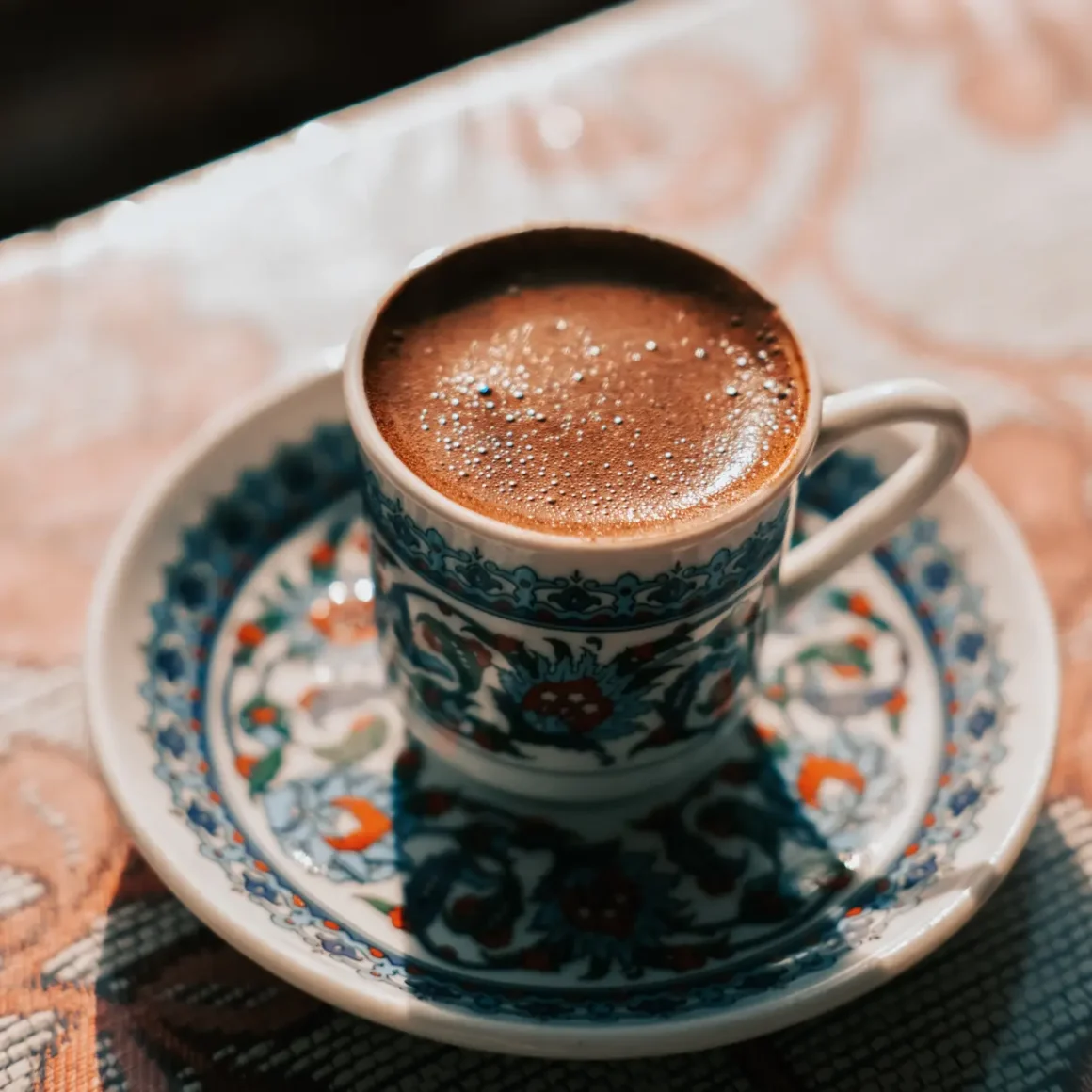
Although this beverage is often likened to Turkish coffee, there are distinct differences that set them apart:
- Brewing Vessel: Both coffees are brewed in a similar Turkish coffee pot known as an “ibrik” or “džezva,” which is a copper pot with a high neck and a long handle. (2)
- Preparation: The Turkish tradition involves combining coffee and, if desired, sugar with cold water prior to heating it on the stove. In the case of Bosnian coffee preparation, the cold water is heated on the stove without any additional ingredients. (3)
- Sugar Content: Turkish coffee often incorporates sugar during the brewing process, while in Bosnia, sugar is added to the already brewed coffee.
- Personalization: One hallmark of Bosnian coffee culture is that sugar content is a matter of individual choice, rather than dictated by the preparer.
It’s crucial to recognize these differences to fully appreciate the nuances of this delicacy.
Evolution of Coffee Culture in Bosnia
The ritual of coffee drinking in Bosnia has evolved over time and has survived various historical milestones:
- Social Impact: In Bosnia, the consumption of coffee is a customary daily practice, holding significant significance in social gatherings.
- Modern Adaptations: In contemporary Bosnia and Herzegovina, coffee is often enjoyed with a small gel-like candy known as a Turkish delight, offering a blend of traditional and modern tastes.
Name Variations
In the Balkan region, particularly in Serbia, Slovenia, North Macedonia, Montenegro, and Croatia, the beloved coffee beverage known as Turkish coffee undergoes a fascinating array of name variations and regional nuances. While the core essence of the coffee remains consistent with the Turkish tradition, each country offers its unique twist and nomenclature, creating a rich tapestry of coffee culture. Here’s a closer look at the diverse name variations associated with this beverage:
Turkish Coffee
The most direct and widely used name across the region, it reflects the close resemblance of this coffee to its Turkish counterpart. In all these countries, it’s known as “Turkish coffee” or its equivalent in the local language, such as ‘turška kava’ (Slovenia), ‘turska kava’ (Croatia), ‘турска кафа’ (North Macedonia), ‘turska kafa’ (Montenegro), and ‘turska kava’ (Serbia).
Domestic Coffee
Another common term for this beverage is ‘domestic coffee.’ This name, known as ‘domača kava’ in Slovenia, ‘домаћа кафа’ in North Macedonia, ‘domaća kafa’ in Montenegro, and ‘domaća kava’ in Croatia, highlights its local and traditional character. It’s a reminder of how deeply ingrained coffee culture is within the daily lives of these communities.
Coffee
Simplicity at its finest, in some places like Slovenia, Croatia, and Montenegro, people refer to this cherished drink simply as ‘coffee’ or its local equivalent, like ‘kava’ or ‘кафа.’ This unadorned name underscores the universal appeal of this beverage and its role as a staple in the Balkan coffee scene.
Serbian Coffee
Notably, in Serbia, Turkish coffee has earned the endearing title of ‘српска кафа’ (srpska kafa), meaning ‘Serbian coffee.’ This distinct name signifies the unique connection that Serbia has with this aromatic brew, emphasizing its special place in the country’s cultural and culinary heritage.
In summary, the name variations of this coffee in the Balkans offer a captivating glimpse into the region’s cultural diversity and shared love for this timeless beverage. Whether you call it Turkish coffee, domestic coffee, or simply coffee, it remains a cherished tradition that unites these nations over a steaming cup of history and heritage.
In essence, this coffee remains a resilient and enduring part of Bosnia’s cultural identity, transcending historical shifts and modern influences.
How to Make Bosnian Coffee: The Traditional Preparation Method
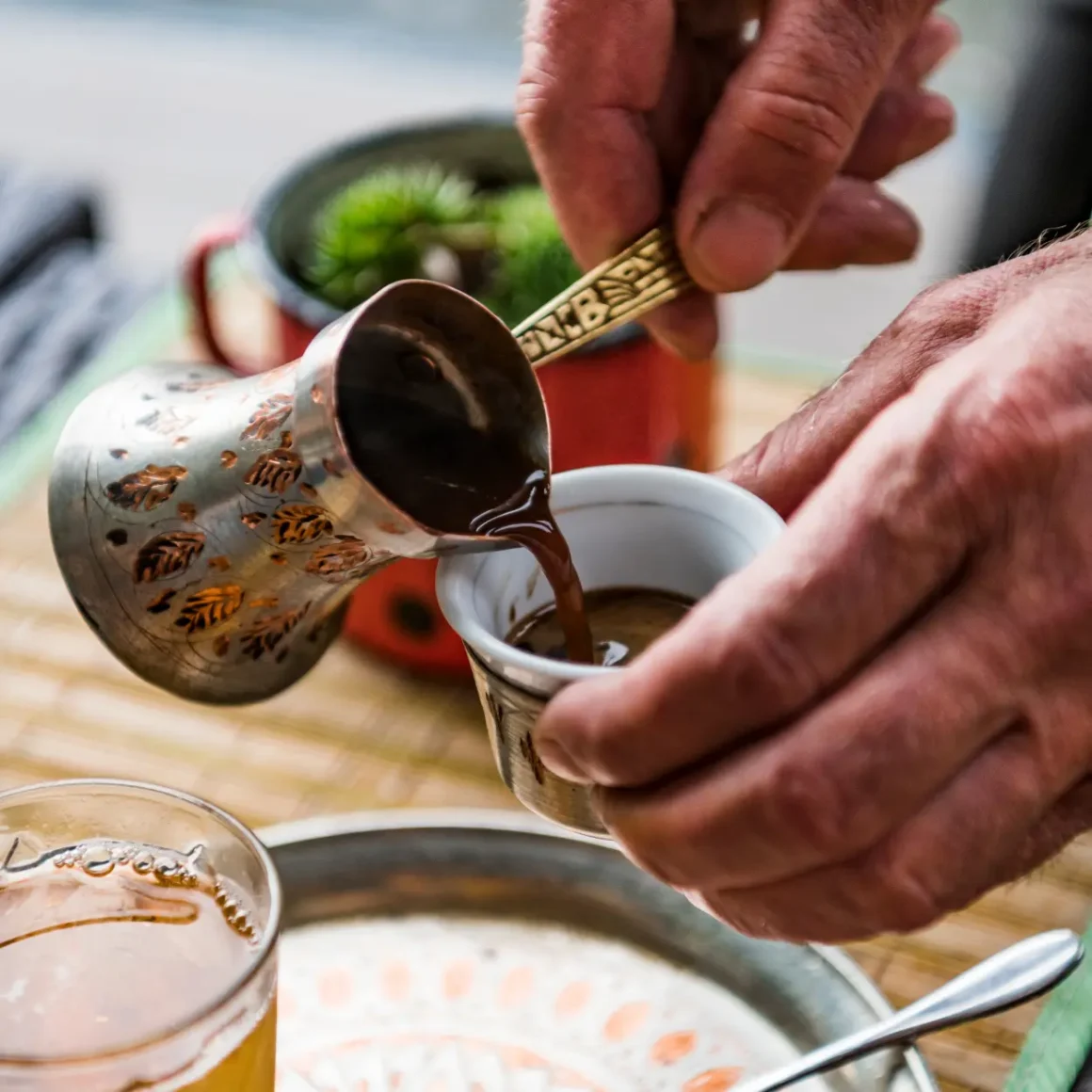
Diving into the rich world of this delicious coffee provides a cultural experience like no other. The meticulous process and unique apparatus used sets it apart from its contemporaries. This guide will walk you through the steps of creating a genuine cup of this beverage, right from selecting the finest beans to mastering the art of brewing.
Selecting the Right Coffee Beans

When embarking on the journey of making a traditional cup of this lovely drink, the foundation lies in the beans you choose.
- Bean Origin: Bosnian coffee beans often hail from local regions, delivering a distinctive flavor profile.
- Roasting Level: These beans undergo a medium roast, allowing for a balance between flavor depth and the bean’s natural oils.
- Grinding Texture: It’s paramount to grind the beans to a very fine powder, reminiscent of powdered sugar, to ensure proper extraction.
Ensuring that you select the right beans is the first and essential step to authentically recreate the experience of this delicacy.
The Role of the ‘Džezva’: More Than Just a Pot
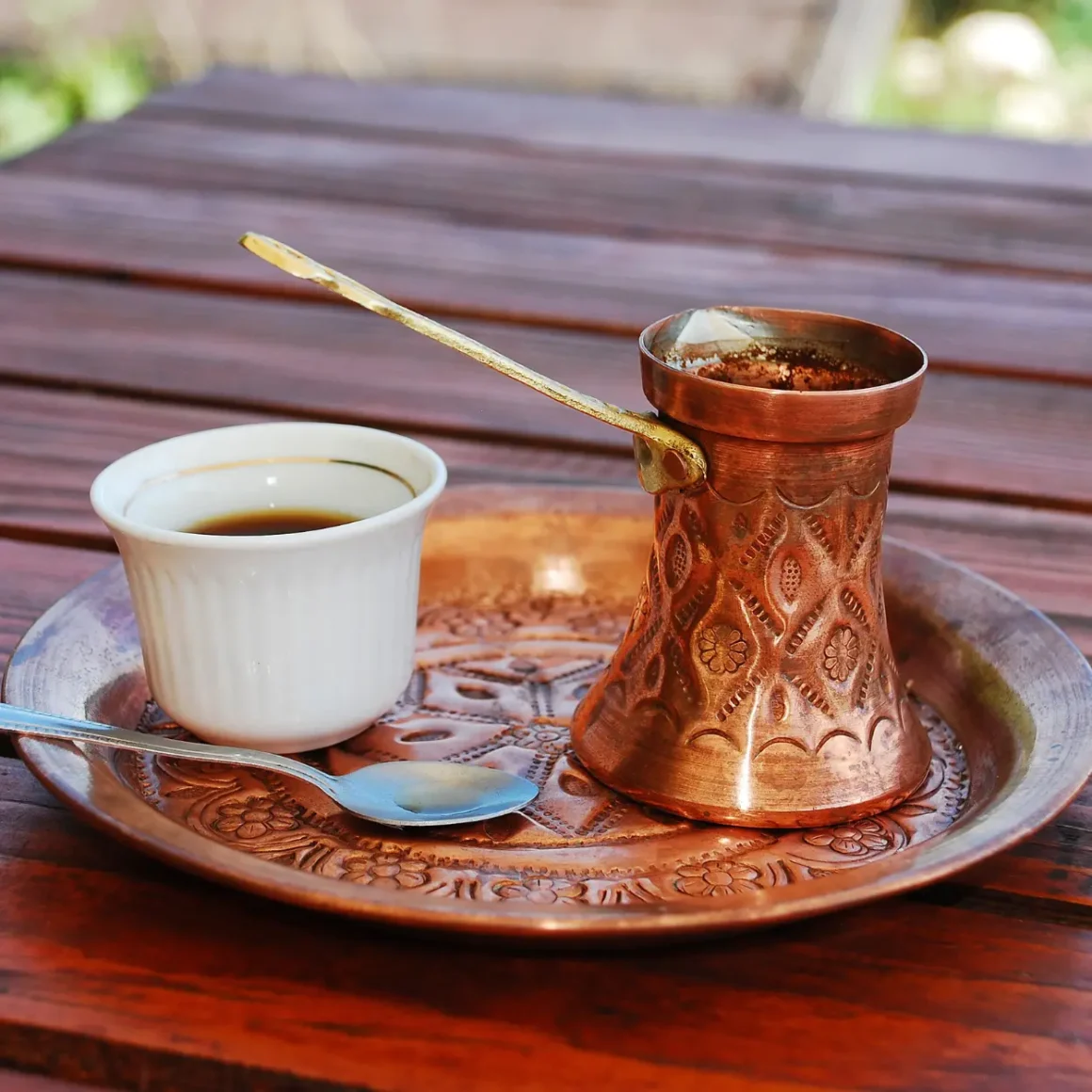
The džezva isn’t just a pot; it’s an emblematic part of the Bosnian coffee set.
- Material Choice: Traditionally crafted from copper, the džezva is sometimes made from silver, both materials known for even heat distribution.
- Design Details: A premium džezva might showcase exquisite hand-hammered motifs, representing Bosnia and Herzegovina’s rich history and landscapes.
- Functionality: Beyond its aesthetic appeal, the džezva’s unique shape aids in the brewing process, enabling the creation of the quintessential coffee foam.
The džezva, with its distinctive characteristics, plays a pivotal role in how to make Bosnian coffee, ensuring each brew is both authentic and flavorful.
The Art of Brewing: Achieving the Perfect Foam
The climax of the Bosnian coffee-making process is the brewing. It’s an art form in itself, and achieving the perfect foam is its crowning glory.
Step-by-Step Process for Preparing Bosnian Coffee:
- Boil Water: Begin by bringing water to a rolling boil in a pot or kettle.
- Reserve Some Water: As the water reaches a boil, set aside a small portion for later use. This reserved water will play a crucial role in the coffee-making process.
- Coffee Grounds and Džezva: Place the finely ground coffee into a special coffee pot known as a ‘džezva’ or ‘cezve.’ This pot is designed for making Balkan-style coffee.
- Return to Heat: Put the džezva back onto the stove for a brief period, typically just a few seconds. The heat reactivates the coffee and initiates the brewing process.
- Foaming: As the džezva heats up again, the liquid inside will boil and start to rise, creating a thick foam on top of the coffee. This is a crucial step that contributes to the unique texture and flavor of Balkan coffee.
- Repeat (Optional): This entire process of heating, foaming, and re-heating can be repeated several times, depending on personal preference. Each cycle enhances the foam and intensifies the coffee’s character.
- Add Reserved Water: Finally, reintroduce the small amount of hot water that you had set aside earlier. This addition is a key moment. It not only enhances the foam but also contributes to the overall flavor of the coffee.
- Serve: Once the coffee is ready, carefully pour it into cups, ensuring that each serving includes some of the coveted foam. Enjoy this rich and aromatic brew as a delightful tradition and a testament to the art of coffee preparation in the Balkans.
To truly appreciate the nuances of a traditional cup of this delectable coffee drink, one must master the brewing process, resulting in a cup that tantalizes the senses with every sip.
Bosnian Coffee in Daily Life
In the intricate tapestry of Bosnian culture, coffee plays a central role that goes beyond mere caffeine consumption. It serves as a backdrop for various life activities, from morning routines to welcoming guests, and has also evolved with modern tastes and preferences.
Morning Rituals and Afternoon Sips

While coffee drinking is a global phenomenon, Bosnians have their unique way of integrating it into their daily life.
- Morning Routine: It’s not uncommon for the day in a Bosnian household to start with the brewing of this drink. Prepared in a džezva, the aroma that fills the air sets the tone for the rest of the day.
- Afternoon Gatherings: The afternoon often brings a more relaxed coffee session, where friends and family gather to catch up, usually accompanied by small bites and perhaps some Turkish Delight.
The entire experience is not just about caffeine; it’s a rich tradition that fosters community and conversation.
Coffee as a Gesture of Hospitality
In Bosnia, coffee serves as more than just a beverage; it is an extension of hospitality.
- Welcoming Guests: It’s customary to offer this beverage to visitors as a sign of hospitality. Often served with sugar cubes and Turkish delight, it encourages a relaxed and intimate setting for conversation.
- Special Occasions: During festivals or family gatherings, Bosnian coffee often takes center stage, symbolizing togetherness and shared joy.
The ritualistic aspects of how to drink Bosnian coffee align closely with the nation’s values of warmth and community.
Modern Adaptations and Fusion Trends
As the world becomes increasingly interconnected, this drink’s culture is no exception to the influence of modern trends.
- Flavored Syrups and Milks: While traditionalists might frown, younger generations are introducing flavored syrups and alternative milks into their cups of this coffee drink.
- Brand Influence: With globalization, Bosnian coffee brands are becoming known for mixing tradition with innovation, often producing unique blends and even instant versions of the traditional brew.
These modern twists demonstrate the adaptability and resilience of this coffee culture, ensuring that it continues to evolve while retaining its core values.
Ceramics and Cups: Serving Bosnian Coffee
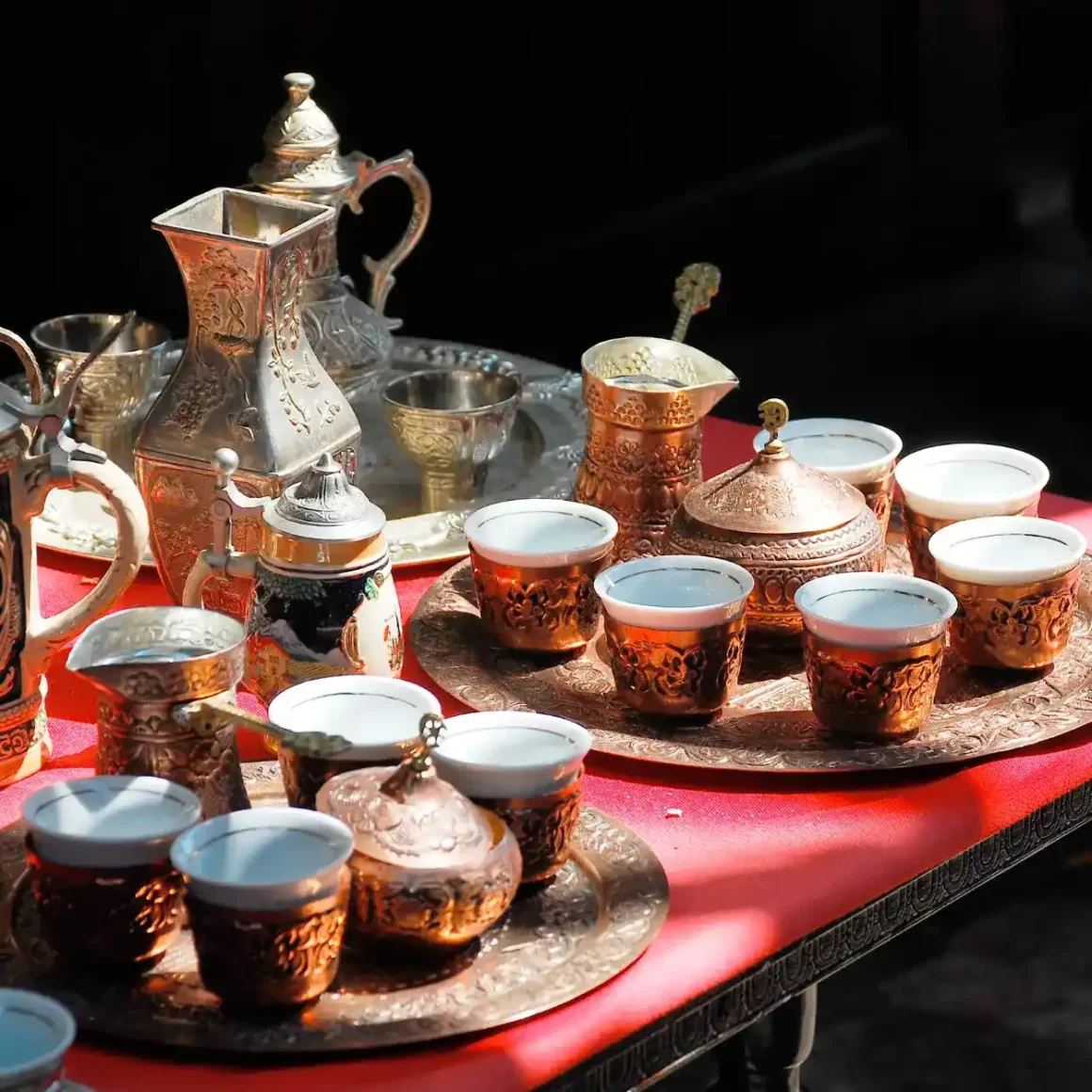
The presentation of this delicacy is a ceremonial affair that celebrates both form and function. The vessels that hold this iconic beverage, particularly the fildžan, are not just functional but carry symbolic meanings and aesthetic value as well.
The Significance of the Fildžan
The fildžan is more than just a cup; it’s a vessel steeped in cultural significance and tradition.
- Size Matters: Unlike the typical Western coffee mug, fildžans are small, almost similar to demitasse cups. The size emphasizes savoring the coffee, making every sip an event in itself.
- Material: Traditionally made from ceramic or copper, the material of the fildžan enhances the drinking experience, ensuring that the coffee remains at the optimal temperature.
It’s hard to imagine the Bosnian coffee ritual without the integral role played by the fildžan.
Decorative Patterns and Their Meanings
A well-crafted fildžan is often adorned with intricate designs that carry specific meanings, linking them to the rich tapestry of Bosnian culture.
- Nature Motifs: Patterns featuring leaves, flowers, or vines often draw from Bosnia’s lush landscapes, connecting the coffee experience to the beauty of nature.
- Cultural Symbols: Some fildžans display intricate carvings of important architectural or historical landmarks, subtly invoking a sense of national pride with each sip.
These designs are not just for aesthetics; they serve as a reminder of the heritage and values that this beverage embodies.
From Practicality to Aesthetics: A Journey
The Bosnian coffee set has evolved over time, moving from a purely practical role to one that also places emphasis on aesthetics.
- Handcrafting Evolution: Initially, the fildžan and its counterparts were made with a focus on utility. Over time, as crafting techniques improved, the aesthetic aspects started to take the spotlight.
- Modern Influences: Contemporary designs have started to incorporate more abstract patterns and even experimental materials, reflecting the dynamic nature of Bosnian coffee culture.
The transformation from practicality to aesthetics illustrates the ever-changing yet deeply rooted traditions surrounding this delectable drink, capturing both its historical richness and its adaptability to modern times.
The Philosophical Side of Bosnian Coffee
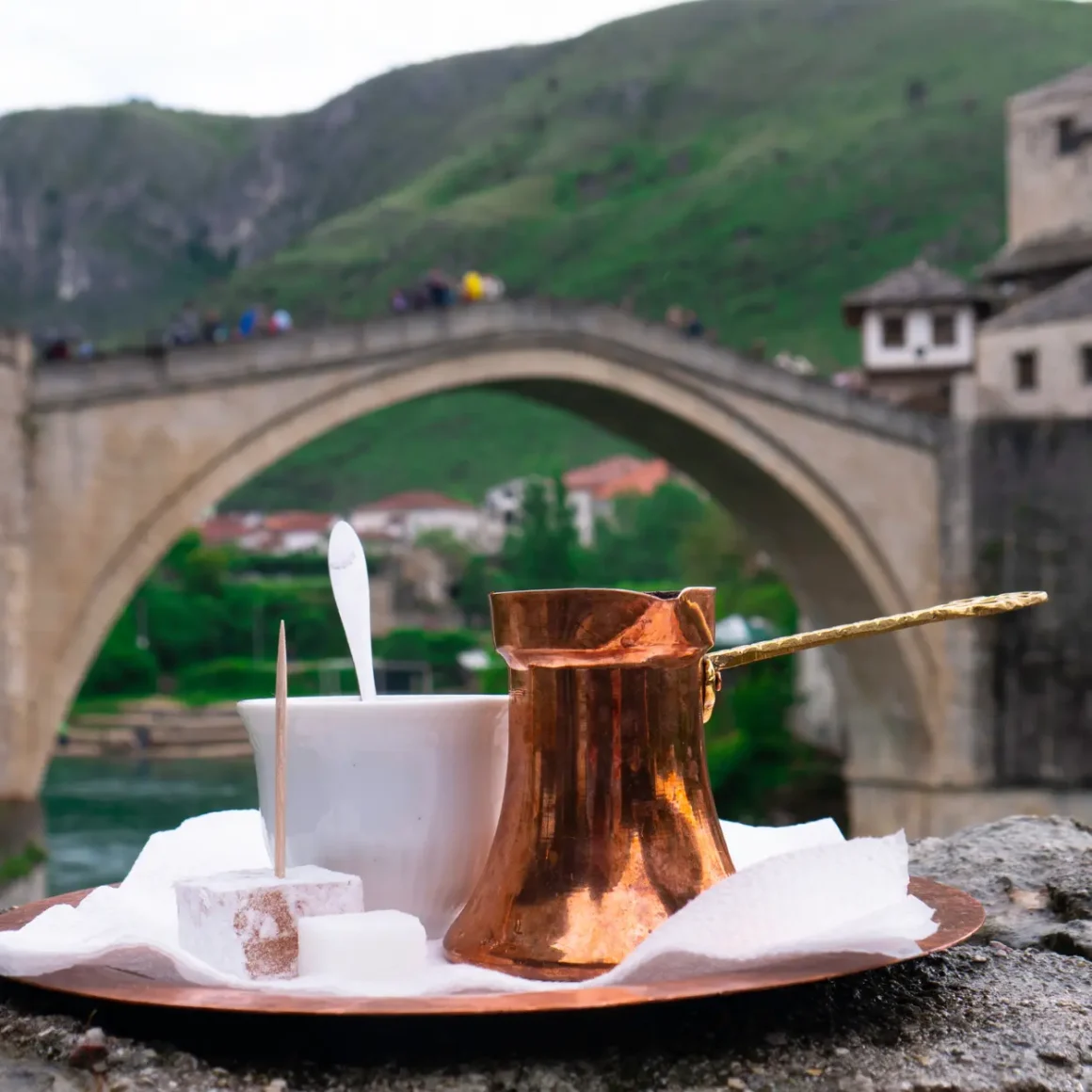
Bosnian coffee isn’t merely a caffeinated beverage; it’s an experience laden with philosophical undertones. It provides a platform for introspection, meaningful conversations, and a unique perspective on the passage of time, all of which add a deeper layer to the simple act of sipping coffee.
Slowing Down in a Fast-Paced World
In a society that is increasingly becoming a slave to the clock, this concoction invites you to pause and savor the moment.
- Intentionality: The intricate process of making Bosnian coffee is a ritual that demands attention, fostering mindfulness and focus.
- Respite: The act of taking small sips from the fildžan allows you to slow down, contrasting starkly with the “coffee-on-the-go” culture prevalent in many parts of the world.
This slow-paced ritual serves as a counterbalance to the relentless speed of modern life, offering a much-needed space for pause and reflection.
Coffee Conversations: The Heartbeat of Bosnian Society
In Bosnia, the coffee table serves as a forum for social interaction, where matters of the heart and soul are freely discussed.
- Community Building: Sharing a pot of this coffee drink creates a sense of togetherness, strengthening communal bonds.
- Meaningful Dialogue: The setting encourages thoughtful conversations on various topics, from personal life events to political discussions.
Coffee conversations are integral to Bosnian society, acting as the heartbeat that fosters connection and camaraderie among its people.
Reflecting on Life, One Sip at a Time
For many, the act of drinking Bosnian coffee transcends the physical and ventures into the realm of the philosophical.
- A Moment for Yourself: Each sip offers an opportunity for introspection, letting you explore your thoughts and feelings in the quietude that accompanies this ritual.
- Life’s Metaphors: The distinct layers in Bosnian coffee—from the foam on top to the grounds at the bottom—can symbolize the highs and lows of life, providing food for thought with each cup.
With each sip, Bosnian coffee becomes a vehicle for examining life’s complexities, making the experience a philosophical journey as much as it is a culinary one.
Conclusion
In essence, Bosnian coffee is not just a drink; it’s an experience steeped in tradition, symbolism and a dash of philosophy. It beckons us to slow down in our fast-paced lives and invest in meaningful conversations that form the heartbeat of Bosnian society. The unique tools used for brewing, like the džezva and fildžan, aren’t mere utensils but art forms, each crafted with an eye to both practicality and aesthetics.
Moreover, the thoughtful methods of preparation and consumption are invitations to reflect on life, one delicious sip at a time. As we’ve journeyed through the multifaceted universe of Bosnia’s coffee culture, it becomes evident that every cup tells a story—of a nation, a family, and an individual. So the next time you sip Bosnian coffee, remember that you’re not just tasting a beverage, but partaking in a rich and unique cultural narrative.
FAQ
Why is the džezva so crucial in preparing Bosnian coffee?
The džezva is essential for achieving the perfect foam and temperature, making it a central element in the authentic preparation of Bosnian coffee.
How has Bosnian coffee influenced its neighboring cultures?
Bosnian coffee has served as a cultural bridge, sharing similarities with Turkish coffee while maintaining its own distinct methods and rituals that have been adopted by neighboring cultures.
Can you use regular coffee beans for Bosnian coffee?
While specific Bosnian coffee beans are preferred, regular coffee beans can be used if they are finely ground using a manual grinder.
What's the significance of the fildžan in Bosnian coffee ceremonies?
The fildžan, or small coffee cup, holds cultural and aesthetic importance, often adorned with intricate designs and serving as more than just a utilitarian object.



